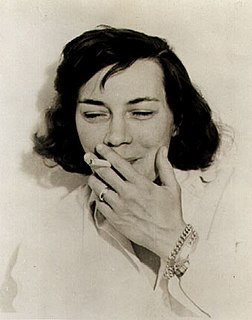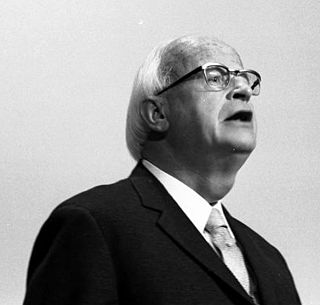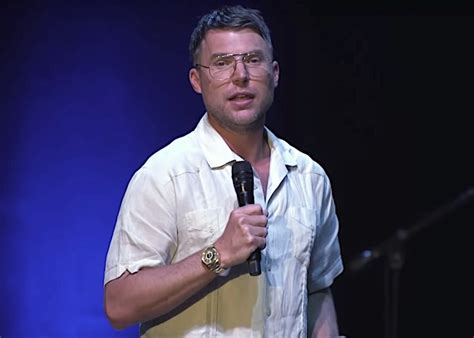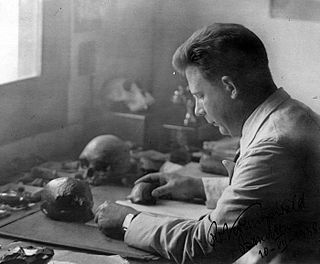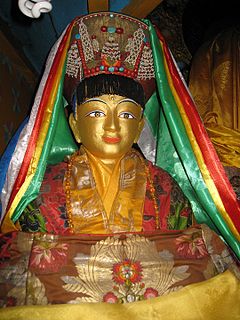A Quote by Patricia Highsmith
He loved possessions, not masses of them, but a select few that he did not part with.They gave a man self-respect. Not ostentation but quality, and the love that cherished the quality. Possessions reminded him that he existed, and made him enjoy his existence. It was as simple as that. And wasn' t that worth something? He existed.
Related Quotes
Jesus did not identify the person with his sin, but rather saw in this sin something alien, something that really did not belong to him, something that merely chained and mastered him and from which he would free him and bring him back to his real self. Jesus was able to love men because he loved them right through the layer of mud.
[Man] is the only animal who lives outside of himself, whose drive is in external things—property, houses, money, concepts of power. He lives in his cities and his factories, in his business and job and art. But having projected himself into these external complexities, he is them. His house, his automobile are a part of him and a large part of him. This is beautifully demonstrated by a thing doctors know—that when a man loses his possessions a very common result is sexual impotence.
A really wise man is feminine, receptive, passive. That's why Buddha looks so feminine. That quality of passiveness, that quality of receptivity... He is just a receptacle. He reflects life: he allows life to reflect in him, to be reflected through him. He sings the song that existence wants to sing through him. He has no ideas of his own; he does not hinder.
In this world, man has two significant possessions: intelligence and emotion. These two possessions govern our day-to-day life. But very often we see that emotion (ego) gets the upper hand in our life. We know that even if someone is extremely intelligent, when his emotion comes to the fore it will devour him. He is compelled to do what his emotion asks him to do.
He had put his hand up in class, a declaration of existence, a claim that he knew something. And that was forbidden to him. They could give a number of reasons for why they had to torment him; he was too fat, too ugly, too disgusting. But the real problem was simply that he existed, and every reminder of his existence was a crime.
It was true that there was no such person as Comrade Oglivy, but a few lines of print and a couple of faked photographs would soon bring him into existence... Comrade Oglivy, who had never existed in the present, now existed in the past, and when once the act of forgery was forgotten, he would exist just as authentically, and upon the same evidence, as Charlemagne or Julius Caesar.
Man did not address his inquiries to the earth on which he stood until a remarkably late stage in the development of his desire for knowledge. And the answers he received to the questions, "Where do I come from?", "What is man?", although they made him poorer by a few illusions, gave him in compensation a knowledge of his past that is vaster than he could ever have dreamed. For it emerged that the history of life was his history too.
Mary adored Jesus as the Bridegroom of souls. Union is the final purpose of love. Jesus by the gift of His substance in the Eucharist unites Himself with our souls as with His dear spouses. As a Bridegroom, He gives them all His possessions, His name, His heart, His whole Self, but on the condition that the soul reciprocates. The soul, His spouse, shall live for Him only
